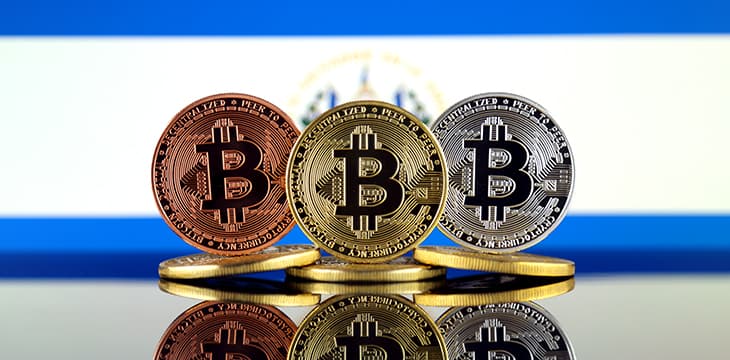|
Getting your Trinity Audio player ready...
|
El Salvador is now the first in the world to accept BTC as legal tender, less than a week after President Nayib Bukele made a declaration that the Central American country will adopt the digital currency as part of the government’s bid to increase financial inclusion and improve the remittance sector as well.
Lawmakers in El Salvador voted—with 62 out of 84 votes—in favor of Bukele’s proposal to create a law that will pave the way towards adopting BTC, Reuters reported.
The #BitcoinLaw has been approved by a supermajority in the Salvadoran Congress.
62 out of 84 votes!
History! #Btc🇸🇻
— Nayib Bukele (@nayibbukele) June 9, 2021
BTC’s use a legal tender will begin in 90 days, with the market setting the BTC-dollar exchange rate. Bukele said using the digital currency is optional for individuals, noting that the government will guarantee its exchange to dollars at the time of transaction via a trust created at El Salvador’s development bank, BANDESAL.
Under the law, digital currency must be accepted bin the country as payment for goods and services. Individuals can also opt to pay for their tax contributions in digital currency. “It will bring financial inclusion, investment, tourism, innovation and economic development for our country,” Bukele said in a tweet before the Congress vote.
The vote comes less than a week after Bukele announced at a Miami conference that he has been working to renew the citizens’ belief in the future of the small nation, and one of the ways he is seeking to do this is through BTC.
Welcome to the future 🇸🇻 #Bitcoin pic.twitter.com/j30vcZVXvJ
— Nayib Bukele (@nayibbukele) June 5, 2021
Bukele said in the recorded presentation, “In the short term this will generate jobs and help provide financial inclusion to thousands outside the formal economy and in the medium and long term we hope that this small decision can help us push humanity at least a tiny bit into the right direction.”
Bukele is popular in El Salvador, with Associated Press noting that his approval rating has consistently been above 90%. His ruling party New Ideas also has a majority in Congress. As such, the bill is likely to sail through and make the Central American nation the first in the world to recognize a decentralized digital currency as legal tender.
Bukele’s embrace of digital currencies is commendable and one that global leaders will hopefully take a cue from. However, his choice of BTC will still derail his dream of liberating the people of El Salvador. While BTC doesn’t suffer from some of the bottlenecks of fiat currencies such as unlimited supply, it still has high fees that limit its use in payments. BTC has also failed to scale and held on to its 1 MB block size which makes it slow and limits the transactions per second.
BSV, on the other hand, scales unbounded, has real-time transactions and only charges fractions of a penny for a transaction. This has seen its usage soar, and in its latest milestone, it surpassed BTC in accumulated data size.
President Bukele followed his announcement with Twitter posts on how he believed BTC would uplift his nation’s economy. One of the sectors he’s targeting is remittances, a critical sector in El Salvador. About 25% of the country’s citizens reside in the U.S and in 2020, they sent home $6 billion, despite the pandemic.
He is also targeting financial inclusion. The country has a high unbanked population, with some studies putting it at over 70%.
However, not everyone was impressed with Bukele’s decision. Rohan Grey, an expert with the Digital Currency Global Initiative told BBC News that this was all a PR stunt.
He further warned “that a country adopting a cryptocurrency as legal tender would give considerable control to a network that isn’t stable, doesn’t have accountable actors and doesn’t have track record of providing the kind of price stability and liquidity that a currency is supposed to provide”.

 02-27-2026
02-27-2026 




